Education
Supreme Court considers endorsing country’s first religious public charter school

WASHINGTON — A case that could weaken the separation of church and state goes before the Supreme Court on Wednesday as the justices consider whether Oklahoma can approve the first-ever religious public charter school.
Although the oral argument concerns only St. Isidore of Seville Catholic Virtual School, which would operate online throughout the state with a remit to promote the Catholic faith, the case could have broad ramifications.
The dispute, which pits Republicans in Oklahoma against each other, highlights tensions within the Constitution’s First Amendment. While the Establishment Clause prohibits state endorsement of religion or preference for one religion over another, the Free Exercise Clause outlaws religious discrimination.
Lawyers for St. Isidore, who are defending the proposal along with the Oklahoma Statewide Charter School Board, have a narrow interpretation of the Establishment Clause and say barring religious entities from applying to run charter schools would run afoul of the Free Exercise Clause.
The Archdiocese of Oklahoma City and the Diocese of Tulsa jointly proposed the school.
“It’s not establishing a religion. It’s the government realizing that there are benefits to having private entities, and we just happen to be a religious private entity providing a valuable service,” Michael Scaperlanda, a former law professor who is now chancellor of the Archdiocese of Oklahoma City, said in an interview.
Oklahoma Attorney General Gentner Drummond, a Republican who challenged the decision to approve the school, said that although supporters of the idea are pushing a religious liberty narrative, he sees it differently.
“It is what it is, and that’s religious indoctrination,” he said.
In recent years, the Supreme Court has repeatedly strengthened the Free Exercise Clause in cases brought by conservative religious liberty activists, sometimes at the expense of the Establishment Clause. Some conservatives have long complained that the common understanding that the Establishment Clause requires strict separation of church and state is flawed.
The case raises two legal questions. The first is whether charter schools are public schools that are effectively instruments of the state or entirely private bodies that just happen to receive state funding.
If they are “state actors” in legal terms, then the state, wary of violating the Establishment Clause, is free to require that charter schools be secular.
The second question is, assuming charter schools are private entities, whether it is a form of religious discrimination under the Free Exercise Clause to bar religious schools from a state charter school program that other entities can participate in.
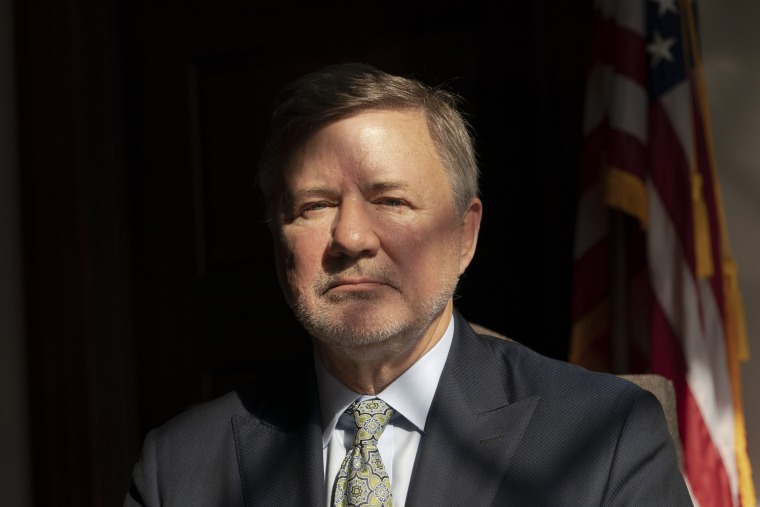
Although the court has a 6-3 conservative majority that often backs religious rights, the case is complicated somewhat by conservative Justice Amy Coney Barrett’s decision to recuse herself. Were the court to split 4-4, the Oklahoma Supreme Court ruling that said the school was unconstitutional would remain intact.
Barrett did not explain why she stepped aside. Before she become a judge, she was a professor at Notre Dame Law School and has close ties there. The law school’s Religious Liberty Clinic represents St. Isidore.
The campaign to authorize religious public charter schools dovetails with the school choice movement, which supports parents’ being able to use taxpayer funds to send their children to private school. Public school advocates see both as broad assaults on traditional public schools.
The school’s lawyers present the case as strictly a Free Exercise Clause issue and cite to a trio of recent rulings in which the Supreme Court said states cannot bar religious entities from programs that nonreligious private groups can apply for.
“Yet, that is precisely what the state did here,” they wrote in court papers.
Drummond countered in his own briefing that charter schools in Oklahoma are like all other public schools, meaning the state can require them not to be sectarian.
How the court ultimately rules will have nationwide implications. All 46 states that allow public charter schools do not allow religious entities to participate, so a ruling in favor of St. Isidore would open the doors to other states’ either changing their laws to allow religious schools or facing lawsuits that would require them.
Drummond said in court papers that such a ruling would bring charter school laws nationwide into question and give “special status” to religious charter schools, because, unlike secular schools, they may not have to comply with certain laws that apply to charter schools if they conflict with religious beliefs.
He told NBC News, “If we go down this road, we have to be prepared for the ramifications.”
A win for St. Isidore could also have unintended consequences, lawyers for the National Alliance for Public Charter Schools warned in a friend-of-the-court brief. They noted, for example, that many charter schools would risk losing vital state funding if the court concluded they are not public schools given that the state bans public money going to any private schools, whether they are religious or not.
The case could also have repercussions at the federal level, where a program that provides funds to charter schools prohibits money from going to sectarian schools.
A state board approved the proposal for St. Isidore in June 2023 despite concerns about its religious nature.
Drummond immediately took legal action, asking the state Supreme Court to intervene and declare the plan unlawful.
The state court ruled last year that the school would violate both state law and the First Amendment.
Education
Trump administration says Penn violated sex discrimination laws after trans swimmer competed

HARRISBURG, Pa. — The Trump administration said Monday that the University of Pennsylvania violated laws guaranteeing women equal opportunities in athletics by letting a transgender swimmer compete on the school’s women’s team and into team facilities.
The administration’s statement does not name Lia Thomas, the transgender swimmer who last competed for the Ivy League school in Philadelphia in 2022 and was the first openly transgender athlete to win a Division I title that year — an award Thomas now faces losing.
But the investigation opened in February by the U.S. Education Department’s Office for Civil Rights focused on Thomas, who became a leading symbol of transgender athletes and a prominent political target of Republicans and President Donald Trump.
The department said Penn violated a law barring sex discrimination in schools and colleges, called Title IX, by “denying women equal opportunities by permitting males to compete in women’s intercollegiate athletics and to occupy women-only intimate facilities.”
Penn had no immediate comment Monday, but Penn has said in the past that it always followed NCAA and Ivy League policies regarding student participation on athletic teams, both when Thomas swam and currently.
The department said Penn has 10 days to voluntarily resolve the violations or risk prosecution.
The department wants Penn to issue a statement saying that it will comply with Title IX; effectively strip Thomas of any awards or records in Division I swimming competitions; and apologize to each female swimmer “whose individual recognition is restored expressing an apology on behalf of the university for allowing her educational experience in athletics to be marred by sex discrimination.”
The Trump administration in March suspended approximately $175 million in federal funding for Penn over its decision to let Thomas compete, the White House has said. The Ivy League school’s federal money came from the Defense Department and the Department of Health and Human Services.
In 2022, the NCAA used a sport-by-sport approach to allowing transgender athletes to participate, deferring to an individual sport’s national governing organization, international federation or prior established International Olympic Committee criteria.
Thomas competed under those guidelines, which allowed female transgender swimmers who had completed one year of hormone replacement therapy to compete.
The NCAA changed its policy the day after Trump signed an executive order on Feb. 5 that was intended to ban transgender athletes from competing in girls and women’s sports. That ended its sport-by-sport practice in favor of a blanket policy that only allows athletes assigned female at birth to participate in women’s sports.
The Education Department also opened reviews of San Jose State University volleyball, Denver Public Schools, Portland Public Schools, Oregon School Activities Association and the Massachusetts Interscholastic Athletic Association.
It also sued the state of Maine to force it to ban transgender athletes from girls’ and women’s sports or face prosecution.
Education
Students and faculty demand Columbia University stand up to federal government
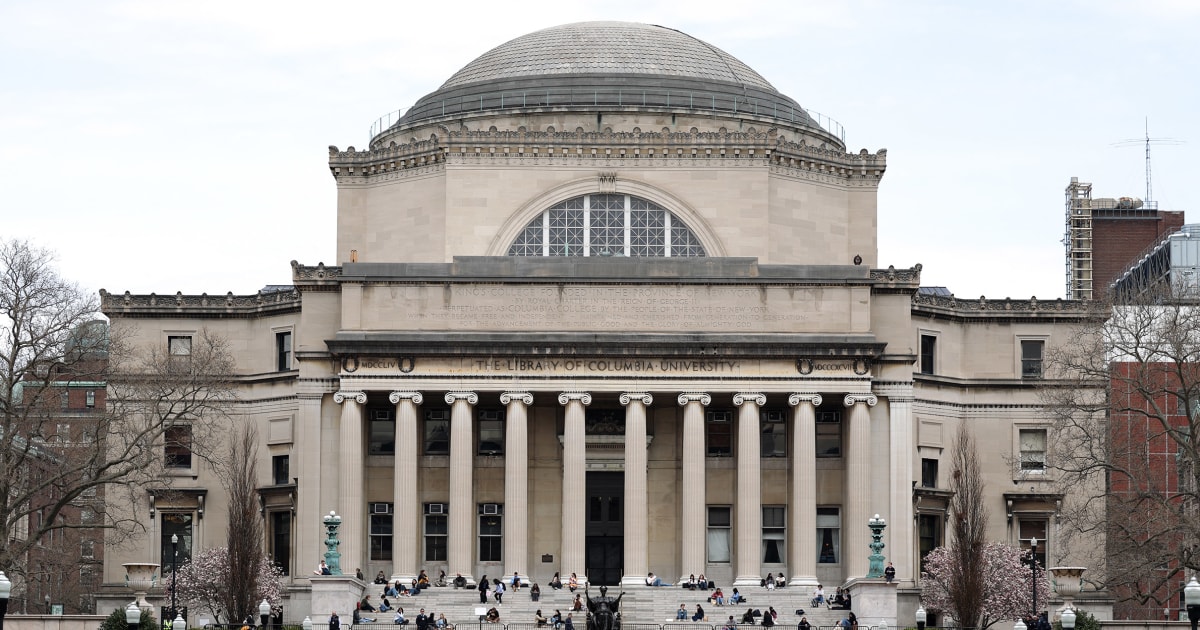
Columbia University students, faculty, staff and alumni launched a “speak out” Monday to criticize school leaders for bowing to the Trump administration’s demands after it pulled $400 million in federal funding from the campus.
Hundreds of students, faculty, staff and alumni were expected to take part in the 25-hour event that organizers said was intended to amplify a growing position within the Columbia community that the school administration had caved-in to Washington and that the school’s academic freedom was under attack.
The administration has paused billions of dollars in federal grants and research funding at universities nationwide to target what it describes as a failure to deal with antisemitism and its handling of protests against Israel’s military action in the Gaza Strip.
“All of us have dedicated our lives to both a continual process of learning but also educating,” Brooke West, a professor of social work at Columbia said, as dozens of students walked by. “But how can we do that when our students, when our institutions and academic freedom and free speech are under attack?”
Columbia was the first university the administration targeted, and it conceded to several requests, including adjusting its admissions process and implementing “greater institutional neutrality.”
White House spokesman Harry Fields said Monday that some universities failed to protect Jewish students and violated the law.
“Universities’ violation of federal law, due to their blatant reluctance to protect Jewish students and defend civil rights, is unbecoming of institutions seeking billions in taxpayer funds,” Fields wrote in an email. “The Trump Administration remains committed to reforming higher education and combating anti-Semitism.”
The Trump administration told the university last month that it would reinstate the school’s federal funding if it met certain demands, including banning masks on campus and holding disciplinary hearings for student protesters
Students and faculty said they had some demands of their own for the university: fight back against federal attacks; protect and defend students and international scholars; re-establish diversity policies; and protect researchers.
Professors at the rally hoisted signs reading, “Columbia Fight Back,” “Defend Freedom of Speech” and “Protect our Students.”
Authorities have apprehended at least three Columbia students in recent weeks, including graduate student Mahmoud Khalil, who was involved in student protests last year.
Education
1 dead, 6 wounded in shooting at Elizabeth City State University
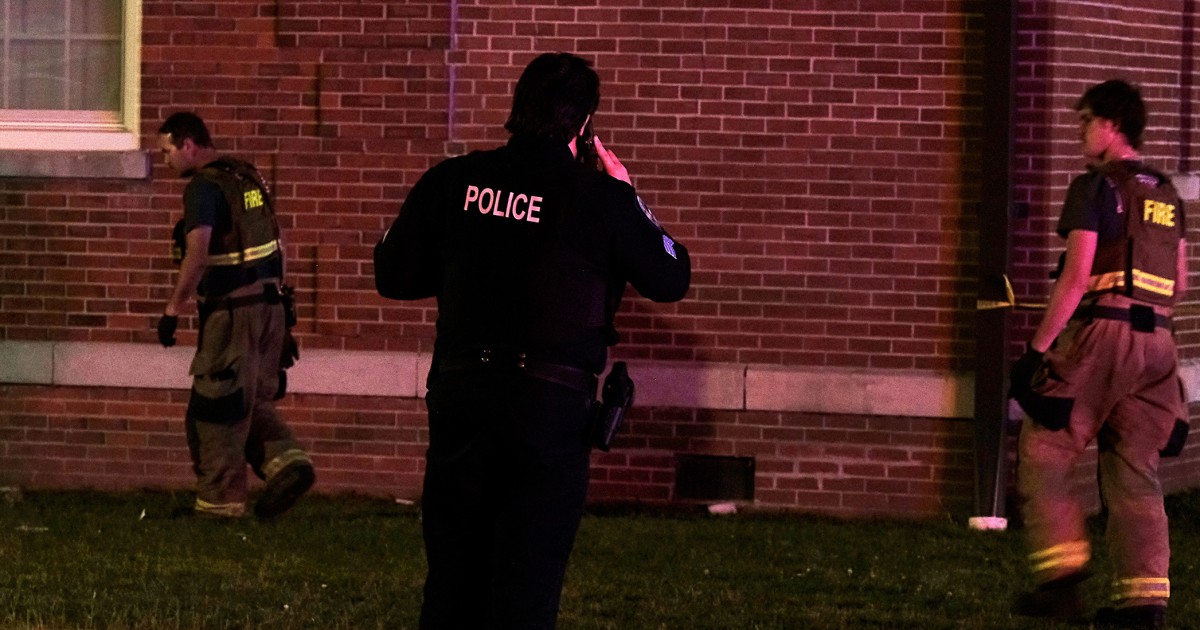
ELIZABETH CITY, N.C. — A shooting at a small college in eastern North Carolina left one person dead and six others wounded and prompted a campus lockdown early Sunday, the university said.
The shooting occurred in the center of Elizabeth City State University’s campus following Yard Fest, the final event of the historically Black university’s weeklong Viking Fest celebration, the school said in a statement.
A 24-year-old man who was not a student was pronounced dead. His identity wasn’t immediately released pending notification of his family, the statement said.
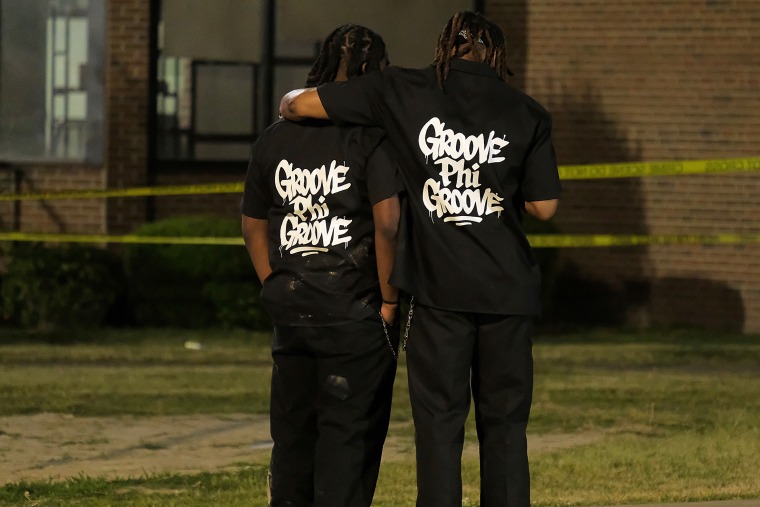
Four people sustained gunshot wounds, including three students, while two other students were injured during the commotion. None of the injuries were considered life-threatening. All the injured were taken to a hospital for treatment, the statement says.
A call to campus police was referred to a university spokesperson, who didn’t immediately return a telephone message.
“The university is deeply saddened by this senseless act,” the university said in an earlier statement.
The lockdown was later lifted, and the university increased patrols across campus as a precaution. Access to the center of campus remained restricted later Sunday.
The university has 2,300 students and is about 50 miles south of Norfolk, Virginia.
-
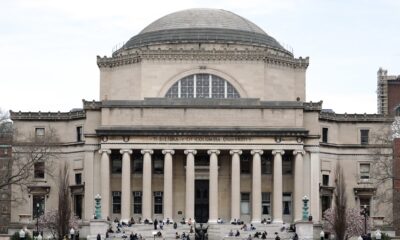
 Education2 days ago
Education2 days agoStudents and faculty demand Columbia University stand up to federal government
-

 Europe2 days ago
Europe2 days agoAlexandra Fröhlich: Police launch murder investigation after bestselling novelist found dead on houseboat
-

 Conflict Zones2 days ago
Conflict Zones2 days ago‘Traitors’: Hate-filled songs target Indian Muslims after Kashmir attack | Islamophobia News
-

 Conflict Zones2 days ago
Conflict Zones2 days agoHezbollah leader says Lebanese gov’t must do more to end Israeli attacks | Hezbollah News
-

 Africa1 day ago
Africa1 day agoBomb Blast Kills 26 in Northeast Nigeria
-

 Europe1 day ago
Europe1 day agoWhat caused the power outage in Spain and Portugal? Here’s what we know
-

 Middle East1 day ago
Middle East1 day agoI was forced to burn my books to survive in Gaza | Israel-Palestine conflict
-

 Conflict Zones16 hours ago
Conflict Zones16 hours agoAbout 600 North Korean soldiers killed in war in Ukraine, lawmakers say | Russia-Ukraine war News




